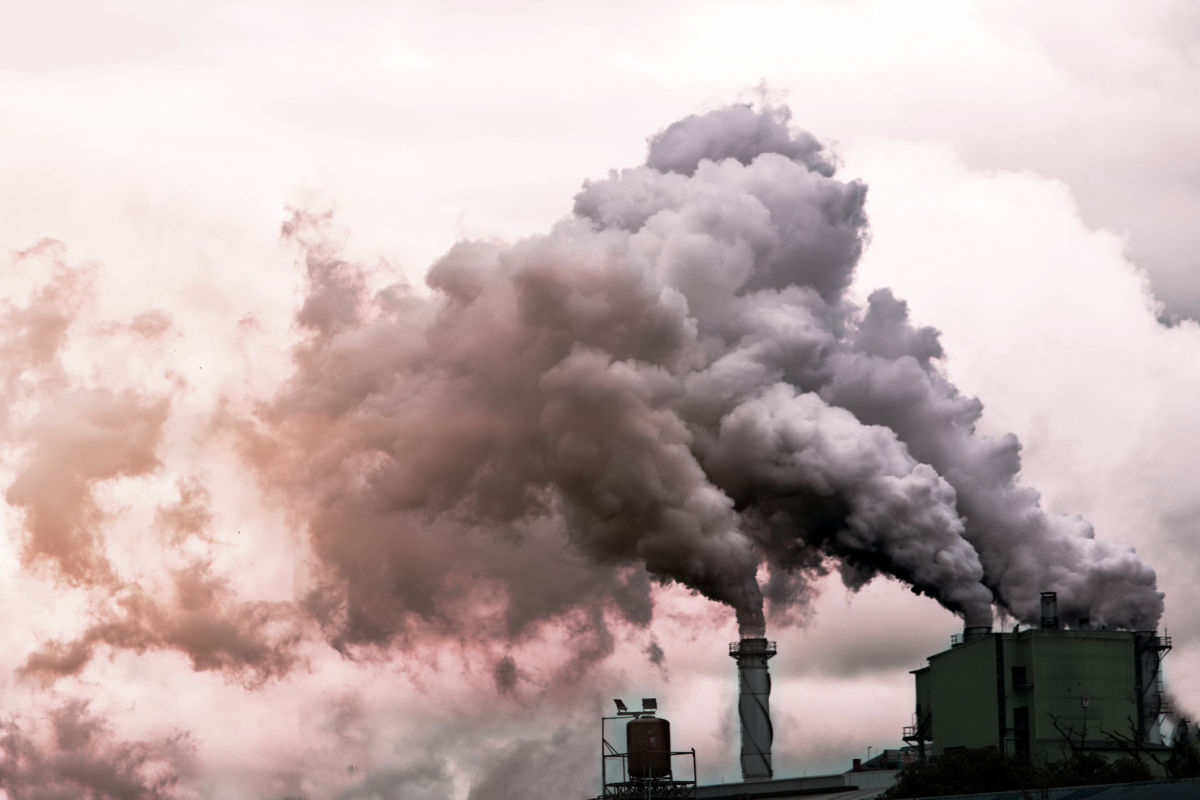Atmospheric levels of carbon registered 415 parts per million over the weekend at one of the world’s key measuring stations, a concentration level researchers say has not existed in more than 3 million years — before the dawn of human history.
Taken at the Mauno Loa Observatory in Hawaii by the Scripps Institution of Oceanography, the measure continues the upward trend of atmospheric carbon concentration that lies at the heart of the global warming and climate crisis:
415.26 parts per million (ppm) CO2 in air 11-May-2019 https://t.co/MGD5CTru41 First daily baseline over 415ppm
— Keeling_Curve (@Keeling_curve) May 12, 2019
Meteorologist Eric Holthaus, a journalist who covers the climate crisis for Grist, contextualized the latest readings in a tweet that was shared widely on Sunday:
This is the first time in human history our planet's atmosphere has had more than 415ppm CO2.
Not just in recorded history, not just since the invention of agriculture 10,000 years ago. Since before modern humans existed millions of years ago.
We don't know a planet like this. https://t.co/azVukskDWr
— Eric Holthaus (@EricHolthaus) May 12, 2019
One person responded to the Holthaus tweet by asking, “How is this not breaking news on all channels all over the world?”
Rich Pancost, head of the School of Earth Sciences at the University of Bristol in the U.K., said that the best guess of the scientific community is that global atmospheric carbon levels have not been this high for “about 3 millions years… [m]aybe more.”
To the best of our knowledge – about 3 million years. Maybe more.https://t.co/pUowvkGzYI pic.twitter.com/V19NSRug7e https://t.co/i83NMOUvaa
— Rich Pancost (@rpancost) May 12, 2019
Writing on his Informed Comment blog Monday, historian Juan Cole said that life on Earth in that pre-historic era, known as the Pliocene Period, is not a place humans would recognize:
In the Pliocene, it was much hotter.
In the Pliocene, oceans were much higher, maybe 90 feet higher.
That is our fate, folks. That is what 415ppm produces. It is only a matter of time, and some of the sea level rise will come quickly.
Amsterdam, New Orleans, Lisbon, Miami – the list of cities that will be submerged is enormous.
Elsewhere online, reaction to the unsettling milestone was met with a mix of frustration, alarm, and fresh demands for urgent action to address the crisis.
These broken records are starting to sound like a broken record. https://t.co/7kePdTwB6x
— Greenpeace (@Greenpeace) May 13, 2019
Climate warning as global CO2 levels rise to highest point in millions of years#letsbanfossilfuelshttps://t.co/JW80kaBJ9h
— Let's Ban Fossil Fuels (@ban_fossilfuels) May 13, 2019
Despite the new measurement, it is not as if humanity has not been endlessly warned that this is the path it’s on.
“If the threshold seems unremarkable (it shouldn’t),” wrote Jonathan Shieber at TechCrunch, “it’s yet another indication of the unprecedented territory humanity is now charting as it blazes new trails toward environmental catastrophe.”
As Shieber explains:
The increasing proportion of carbon dioxide in the atmosphere is important because of its heat absorbing properties. The land and seas on the planet absorb and emit heat and that heat is trapped in carbon dioxide molecules. The NOAA likens CO2 to leaving bricks in a fireplace, that still emit heat after a fire goes out.
Greenhouse gases contribute to the planet maintaining a temperature that can sustain life, but too much can impact the entire ecosystem that sustains us. That’s what’s happening now. As the NOAA notes, “increases in greenhouse gases have tipped the Earth’s energy budget out of balance, trapping additional heat and raising Earth’s average temperature.”
While scientists have stated that much of the future warming is already “locked in,” Cole points out that humanity’s main focus must be to make sure all efforts are made to reverse the emissions trend in order to limit the scale of the destruction.
“What can be stopped is its getting any worse,” Cole concluded. “But that would require moving with blinding speed to wind and solar power and electric cars.”
And the message from the global climate justice movement has been crystal clear: It’s an emergency. Act like it.
Join us in defending the truth before it’s too late
The future of independent journalism is uncertain, and the consequences of losing it are too grave to ignore. To ensure Truthout remains safe, strong, and free, we need to raise $43,000 in the next 6 days. Every dollar raised goes directly toward the costs of producing news you can trust.
Please give what you can — because by supporting us with a tax-deductible donation, you’re not just preserving a source of news, you’re helping to safeguard what’s left of our democracy.
